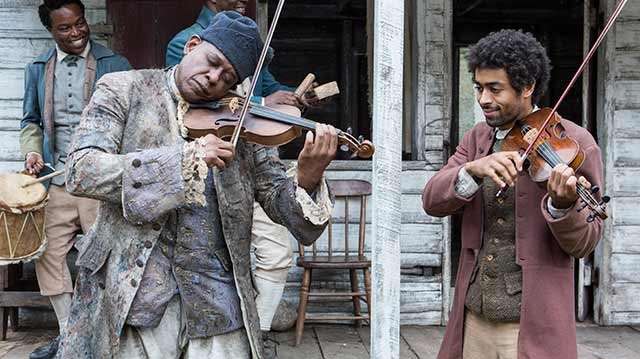6-8 September 2017 University of Hertfordshire, School of Creative Arts, College Lane, Hatfield, Hertfordshire, AL10 9AB Deadline for proposals EXTENDED:
CST Online


Having recently returned to work after several weeks off work because of anxiety and clinical depression, it seems appropriate to write about a ‘trending’ topic: mental health, mental illness, its representations in popular media, and how all of these affect staff and students in universities. I am referring here to my own experience working in a UK institution of HE but I’m sure some aspects of the situation apply elsewhere.

It was a bold scheduling move on the part of ITV, the UK’s main commercial television channel. Shifting the nightly news programme to make way for Britain’s latest attempt at a US-style late night talk show was always going to be risky.

I finally got around to watching the new version of Roots (if you haven’t seen it yet, episodes 2-4 are still available on the IPlayer). The series, even in its new version, still feels monumental: it evidences just how rare it still is to see history told from any other point of view than that of a white, heterosexual man. Unfortunately, despite this feeling of observing television history, I also found myself being quite disappointed.

Forgive me if I am wrong, but I had thought that Higher Education was for adults, albeit young ones. On the pages of CSTonline we have, from time to time, talked about the problem of teaching TV Studies at University.
University of Westminster, London, United Kingdom 23 June 2017 This one-day conference seeks to explore representations of the body as strange, shameful, wrong, impaired, wounded, scarred, disabled, lacking, different or ‘other’ in contemporary media.
Guest Editor: Alfred L. Martin, Jr. University of Colorado Denver Alfred.Martin@UCDenver.edu DEADLINE: SEPTEMBER 1, 2017 PROPOSED PUBLICATION DATE: Fall/Winter 2018 Production studies has often failed to include sexuality and queerness in its research agenda.
CALL FOR PAPERS – InMedia, the French Journal of Media studies DOCUMENTARY AND ENTERTAINMENT The purpose of this special issue of InMedia is to further the understanding of the documentary by linking it to the notion of entertainment, which has so far been underexplored in the expanding field of documentary studies.

I don’t have much time for WikiLeaks or its narcissist-in-chief. Anyone surprised by their revelations (consider, you know, the history of the US government domestically and internationally since, oh, 1776) or his conduct (q.v. Julian Assange v. Swedish Prosecution Authority) is naive in the extreme.
Hosted by the Media Convergence Research Centre, Bath Spa University One-Day Symposium: Thursday 8th June 2017 Confirmed Keynotes: Prof Kerstin Stutterheim, Bournemouth University John Mateer, University of York Prof Bambo Soyinka, Bath Spa University The Media Convergence Research Centre at Bath Spa University is proud to be hosting the 2017 Journal of Media Practice and MeCCSA Practice Network Annual Symposium.

Contemporary media culture seems to suggest that it is unacceptable for a woman to look her age if she is over twenty-five. Apart from the flood of anti-aging products and procedures advertised to ever younger audiences, another key indicator for this trend can be found in the female faces presented to us in popular television programmes.